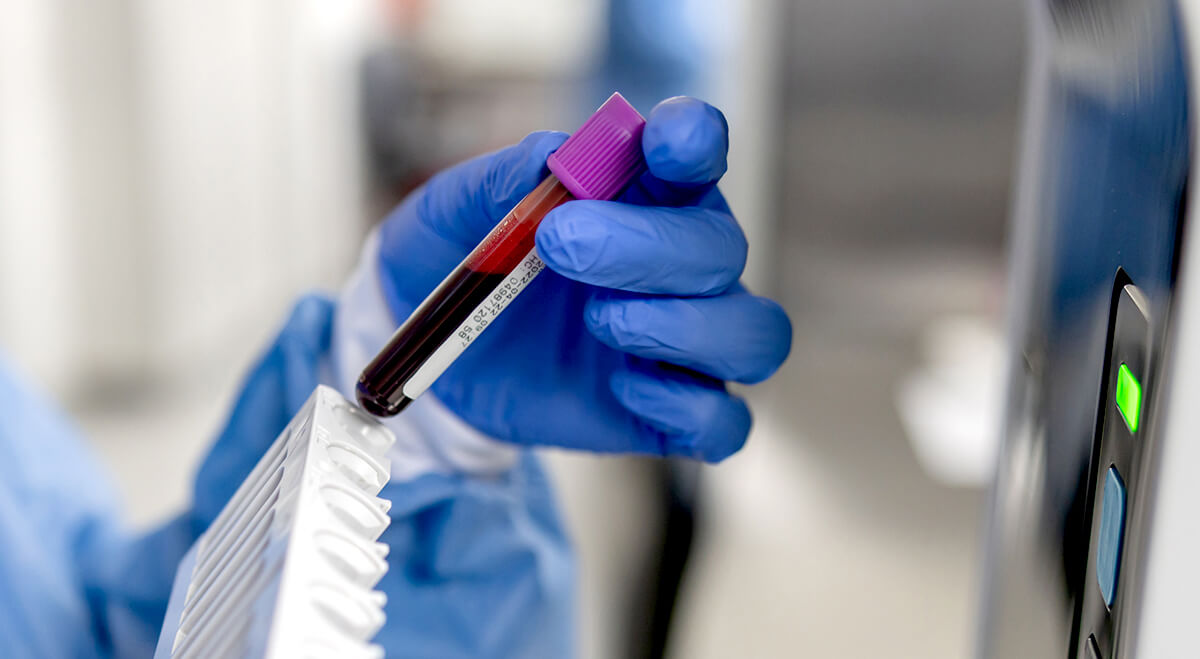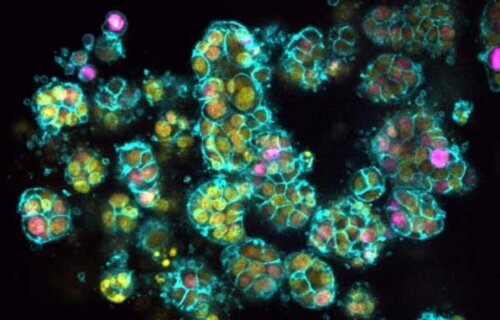SYDNEY, Australia — A cutting-edge blood test might finally be able to detect pancreatic cancer. The highly aggressive disease is often diagnosed late because its early stages do not exhibit specific symptoms. Most patients receive a diagnosis only when the cancer has already advanced and started affecting nearby organs.
Over 64,000 Americans have been diagnosed with pancreatic cancer, while more than 50,000 will die, according to the American Cancer Society.
Pancreatic cancer is a silent killer, with poor survival rates mainly due to a lack of symptoms and effective screening tools to detect the disease in its early stages. Scientists from the Walter and Eliza Hall Institute (WEHI) in Australia aim to change that by creating a blood test capable of identifying patients with early-stage pancreatic cancer, a development that could significantly improve survival rates and the quality of life for affected individuals.
“There are no early detection biomarkers for pancreatic cancer and this needs to urgently change,” says lead researcher Dr. Belinda Lee, a consultant medical oncologist at WEHI, in a media release. “We have identified 13 proteins that could distinguish between the early and late stages of pancreatic ductal adenocarcinoma (PDAC) – the most common type of pancreatic cancer that’s fast-becoming the cancer of our generation.”
Early detection for pancreatic cancer would be monumental
While the five-year survival rates for most other cancers have improved, the incidence and death rate from PDAC are rising. It is projected to become the second leading cause of cancer-related death by 2030. Even after a diagnosis, there are currently no biomarkers available to guide clinical decisions for pancreatic cancer, leaving clinicians with limited options for tailoring treatment to individual patients.
“We hope to validate these proteins and show that they can be used to reliably screen for early pancreatic cancer,” explains Dr. Lee. “This would allow us to create the first diagnostic test to identify patients who have early stages of pancreatic cancer – something that unfortunately does not exist at the moment.”

To achieve their goal, researchers will leverage the PURPLE Pancreatic Cancer Translational Registry, a global database established by Dr. Lee at WEHI in 2016, with philanthropic support. This registry tracks the treatment journeys of patients at 48 cancer centers across Australia, New Zealand, and Singapore, and currently holds data on over 4,000 patients and 2,000 biospecimens.
Data from the registry highlights that a staggering 70 percent of patients are diagnosed with advanced disease, underscoring the urgent need for biomarkers to enable earlier detection.
“We will utilize state-of-the art technologies and computational methodologies to compare the protein signature in the blood of healthy individuals, to pancreatic cancer patients with early and late-stage disease,” says Dr. Lee. “We hope this test can be used by general practitioners to identify patients with disease, or by oncologists to identify the right treatment for patients. The ultimate goal is that this tool leads to earlier diagnosis of this silent cancer, thereby increasing the number of patients who go into remission and helping us triple survival rates by 2030.”
The study is published in the journal Communications Medicine.

I was in the hospital 14 months ago being treated for type 2 diabetes, and cellulitis of the legs. A day before being scheduled to leave, one of my Dr’s decided to run a test that would show if there was any obvious blockage at the top of my legs. Much to their surprise, then mine, a mass was spotted on my pancreas! I thought the diabetes was bad; but this was something NO ONE had mentioned. And the look on the nurses face was enough to let me know that this could be REALLY BAD! Well, turns out that wasn’t my second to last day, because now my new cancer Dr to run more tests to see exactly what we were looking at. I never quite understood what my foreign Dr said, but I’m thinking that she told me this was caught in the early stages just by chance, and that the small (dime size) mass was non cancerous. It’s been 14 months so … I have an appointment coming up in a couple of weeks with my pancreatic surgeon to discuss how much this thing has grown and to schedule surgery. He’s told me that he’ll have to cut my down out and half of my pancreas. Still praying that all works out fine, however, still worried.
I meant to say that my surgeon will have to cut my spleen out and half of my pancreas. I’m still worried and still freightened, but I feel blessed that the mass was fortunately found in the earliest of stages and that it is apparently non cancerous. But I am very happy for the people farther down the road that this new technology is not only going to help, but it is also going to be saving lives. Thank you Father God for this wonderful blessing! I already know how relieved people are going to be knowing that they’re not being handed a death sentence. I know this from from my feelings I had when they told me that they had found a mass on my pancreas. It has changed my life and I know this new technology is going to change others! For the better!!!
How I do wish this test has been available back in 2010 when my husband was diagnosed with stage 4 pancreatic cancer.
He only lived just under 4 months. 😭
I still miss him soooo very much.
Urgently nee4ded. We lost a son to it due to late detection!
A GP suspected and detected early signs in my wife’s case and ordered tests. She was diagnosed in the very early stage of Pancreatic Cancer. Prescribed treatment followed and she has been cancer free for four years. Never felt better and is full of energy.
Are these articles published to raise research funds for the investigators? What’s new about researchers “hoping” to produce a better blood test for pancreatic cancer?
They’re probably just testing to see if you took the coofid vaxx.
The text of the article indicates two things:
1-there are currently no identified biomarkers for advanced pancreatic cancer
2–the researchers are in the process of studying the blood of people without pancreatic cancer, with early stage pancreatic cancer and those with late stage pancreatic cancer. If they find meaningful differences among those three groups, they could develop a blood test to detect early stage PC when it would be more treatable.
The title of this article does say “could” which suggests to me that there is currently no available test. So, I did not see the article content and its title as conflicting, While the article certainly should have been edited for a bit more clarity, it doesn’t warrant such a rude comment.
The text of the article indicates two things:
1-there are currently no identified biomarkers for advanced pancreatic cancer
2–the researchers are in the process of studying the blood of people without pancreatic cancer, with early stage pancreatic cancer and those with late stage pancreatic cancer. If they find meaningful differences among those three groups, they could develop a blood test to detect early stage PC when it would be more treatable.
The title of this article does say “could” which suggests to me that there is currently no available test. So, I did not see the article content and its title as conflicting, While the article certainly should have been edited for a bit more clarity, it doesn’t warrant such a rude comment.
This could be useful but the devil is in the details. The main question I have is “what is the positive predictive value?” If the test detects 100% of cancers but also turns positive on a large number of people without cancer, (false positives) you’ll have a lot of people getting a dangerous surgery unnecessarily.
Amen brother
“Screening” healthy sheeple for the Chronic Disease Industry. The best science money can buy.
There currently are no early detection markers. The news titles always have to be over-sensational. I really hope this blood test becomes a reality. Pancreatic cancer sucks!